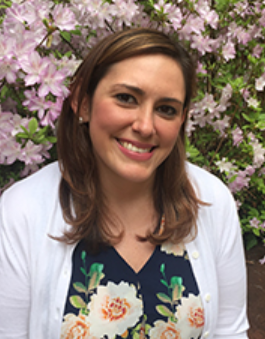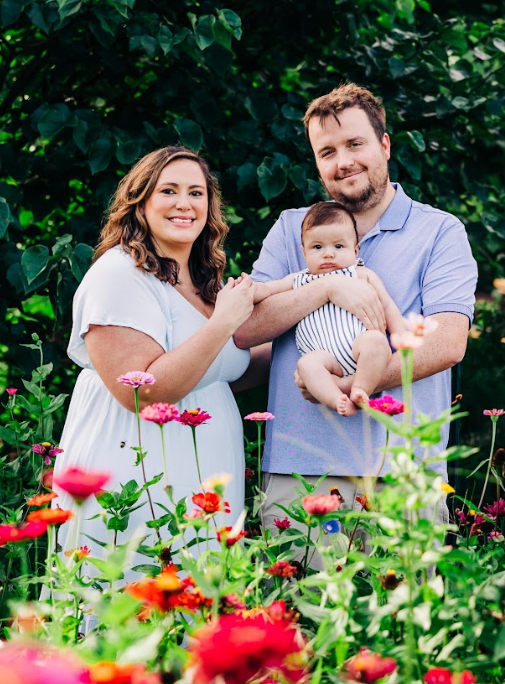Working for Positive Change

Kirsten Gonzalez has devoted her career to understanding the resiliency of marginalized groups and trying to make positive change.
Gonzalez, an associate professor of psychology, is interested in the psychological well-being of individuals who often face discrimination, especially racial and ethnic minorities, and LGBTQ+ people. She’s received the 2022 Chancellor’s LGBTQ Advocate Award, as well as the College of Arts and Sciences 2022 Early Career Research Award and 2021 Junior Diversity Leadership Award.
She said personal experiences have contributed to her passion for research, teaching, and advocacy with a social justice focus.
“I think I was aware from a young age that people were treated differently,” she said, describing how, while growing up, she witnessed a gay couple who lived near her family in Maryland being treated differently than other neighbors. “It wasn’t overt discrimination. I just remember there were things, like parties and open houses, that they weren’t invited to.”
Gonzalez has a bachelor’s degree in psychology from Elon University in North Carolina, a master’s degree in clinical psychology from Towson University in Maryland, and an educational specialist degree and doctorate in counseling psychology from the University of Kentucky. She is a licensed psychologist.
At UT since 2017, Gonzalez’s research and teaching have focused on positive experiences and discrimination related to race and ethnicity, gender identity, and sexuality, as well as the increased vulnerability of those who experience intersectional forms of oppression.
Gonzalez identifies as a heterosexual, cisgender woman who is Latinx, although she said her bi-cultural identity is nuanced because she looks white and doesn’t speak much Spanish. As a result, she’s cognizant of the importance of being inclusive when doing research.
“I always make sure my research team has members of the community we’re studying, that we’re not colonizing spaces we don’t belong to,” she said.
After working with colleagues at the University of Florida to develop and run the Academics for Black Survival and Wellness training program that drew attendees from across the country, Gonzalez helped survey her UT department’s faculty, staff, and students. The goal was to assess the climate and culture to ensure that all members of the psychology community are feeling welcomed and included.
“The struggles in our department paralleled some of those that the University faces as a whole,” she said. For instance, black students said they needed more support from people who looked like them and shared their experiences.
Progress has been made.
Gonzalez said her department has hired several new minority faculty members and has tried to bring in more non-white speakers for departmental events. And to promote mentorship, “I’ve intentionally tried to connect my black advisees with black faculty.”
Gonzalez said she uses experiential learning activities in her multicultural psychology class to broaden the perspective of her students, many of whom identify as white and heterosexual. For instance, she has them compile and share a gender timeline of their life—looking at the messages they’ve received since birth about “appropriate” clothing, occupations, and emotions for people of their gender.
Occasionally she has students participate in a popular multicultural education exercise to illustrate inequities by having students reflect on questions like “Did you have access to books as a child?” “Did you go on family vacations?” “Did you grow up in a single-parent household?” and “Can you hold hands with your significant other in public without facing ridicule?” Gonzalez says she also likes to use an updated version of the exercise to emphasize cultural strengths and values by asking questions like “Do you know your ancestral history?” “Can you speak more than one language?” “Does your family have rich cultural traditions?”
The goal, she said, is not to make students feel defensive, but to “meet them where they’re at and teach them to be better global citizens.”
Some of Gonzalez’s most recent research looks at how the mental health and wellness of marginalized groups fared during the pandemic, recent political turmoil, and tragic incidents, like the Pulse nightclub shooting in Orlando in which many of the victims were LGBTQ+ people of color.

Outside of work, family takes center stage for Gonzalez.
“I always knew I wanted to be a mother,” Gonzalez said. “But I struggled with infertility. We tried for four years. We did everything,” she said.
After an early miscarriage, multiple surgeries, expensive fertility medicines, and, finally, in-vitro fertilization, Gonzalez and her husband, Marc, welcomed their first child, Thomas, in April 2022.
–Story by Amy Blakely